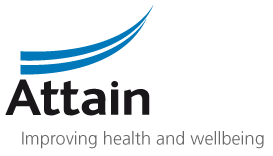We partnered with Draper & Dash on their Executive Patient Flow summit which took place in London on 4th October 2019. The focus of the event was patient transformation, promoting system integration, cost improvement initiatives and the value of technology. The event was attended by over 200 senior executives from NHS organisations.
Our approach
As experts in system transformation and delivery, the Attain team facilitated several workshops throughout the day. Helen Pyecroft, Director, and Michael Bewell, Senior Manager, hosted a roundtable discussion on ‘transformation’, addressing where in the system patient flow challenges are and how these can be overcome.
The group discussions identified a series of factors key to transforming complex health systems. Solutions that have been proven to work by the experienced NHS stakeholders in the room included:
- Removing the fear to try something different – owning risk and empowering others to give things a go
- Trying something better, if not perfect
- Building a narrative that rallies the troops – something that gives people permission and space to give things a go
- Using data to ensure that everyone knows the daily plan – what do I have to do today to support patient flow?
Our patient flow insights and ways to correct it
Based on our experience. patient flow is about systems, processes and behaviours working together. Attain’s focus is on developing clinical models that support the flow of patients inside and outside hospital.

Understand the dependencies and adjacencies
Patient pathways, like people, exist in a complex eco-system – looking at activity and organisations in isolation can create division and fear. Understand the exam question, the dependencies and adjacencies and develop plans to address root causes, not symptoms.
Clinical cases for change are the most persuasive to all stakeholders
From patients to Boards; these link to the NHS’s values and are critical to winning ‘hearts and minds’ at every level, across all stakeholder groups.
Working with partners, but also focus on what you can control
The causes of poor flow are built up over several years, with inputs and impacts from across the entire system. Addressing complex issues as a single organisation will only address part of the challenge.
Don’t duck the hard stuff
The system and your organisations are complex, asking the difficult questions, challenging norms and red lines requires insight, integrity and courage.
Use an evidence base
Use your data, your clinicians and your operational staff to understand what is really going on – data and united clinical teams provide the foundation for sound decisions, to which people are bought in.
Move to action
Don’t wait for perfection in planning a change to pathways; create a case for change, engage the key people and move to delivery and start to change things.

